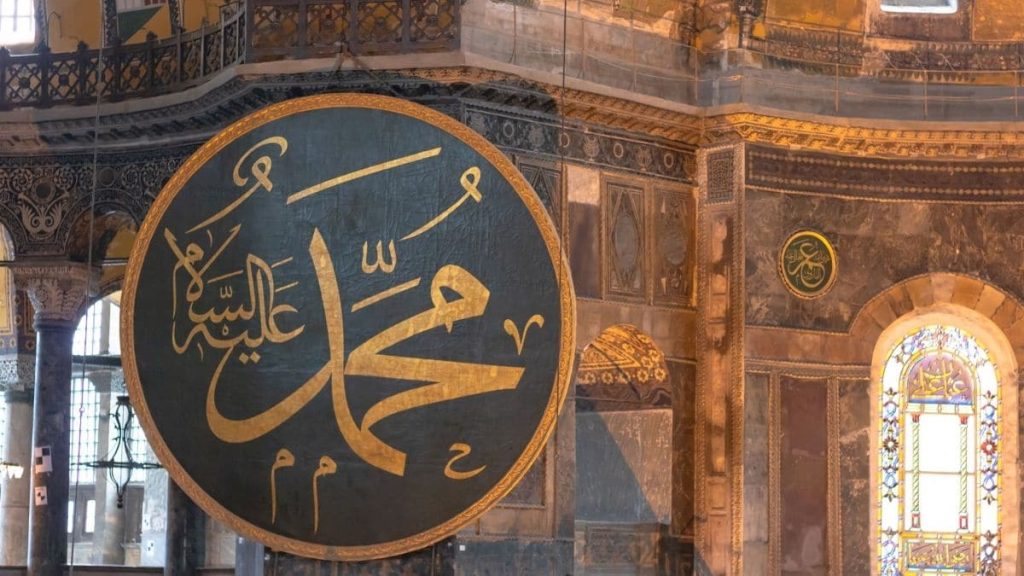Prophet Muhammad (SAW)
Life History of Prophet Muhammad (SAW) - Life of Prophet Muhammad - Prophet Muhammad Wives - Prophet Muhammad Kids - Prophet Muhammad Family Tree
Holy Prophet Muhammad (SAW)
The Prophet Muhammad (SAW) is the final and most important prophet in Islam. Born in Mecca in the year 570 AD, he began receiving revelations from Allah at the age of 40, which he then conveyed to the people as the Qur’an. Through his leadership, he united the Arabian Peninsula under the banner of Islam and laid the foundation for one of the world’s greatest civilizations. This essay will explore the life and legacy of the Prophet Muhammad (SAW) in greater detail, highlighting his achievements, his struggles, and the impact he has had on the world.
Early Life
The Prophet Muhammad (SAW) was born into the Banu Hashim clan of the Quraysh tribe, one of the most prestigious tribes in Mecca at the time. His father, Abdullah, died before he was born, and his mother, Amina, died when he was six years old. As a result, he was raised by his grandfather, Abdul Muttalib, until his death when Muhammad (SAW) was eight years old. He then came under the care of his uncle, Abu Talib, who was also his protector throughout his life.
Growing up, the Prophet Muhammad (SAW) was known for his honesty, generosity, and his wisdom. He was often called upon to mediate disputes among the people of Mecca, and he was well-regarded for his fairness and impartiality. He was also known for his deep spirituality, and he would often spend time in prayer and meditation in the hills outside of Mecca.
Revelation
At the age of 40, while he was meditating in a cave on the outskirts of Mecca, the Prophet Muhammad (SAW) received his first revelation from Allah. The angel Gabriel appeared to him and told him to recite the words of Allah, which would become the basis of the Qur’an. Over the next 23 years, the Prophet Muhammad (SAW) received a series of revelations, which he then shared with the people of Mecca and Medina.
At first, the people of Mecca were sceptical of the Prophet Muhammad (SAW) and his teachings. They saw him as a threat to their way of life, and many feared that he would disrupt the social order. Despite this, the Prophet Muhammad (SAW) continued to preach the message of Islam, emphasizing the importance of monotheism and the need for social justice.
Migration to Medina
In 622 AD, the Prophet Muhammad (SAW) and his followers were forced to flee Mecca and seek refuge in the city of Medina. This event is known as the Hijra and marks the beginning of the Islamic calendar. In Medina, the Prophet Muhammad (SAW) was able to establish a new community based on the principles of Islam. He was able to unite the various tribes and factions in the area, and he set up a system of governance based on consultation and consensus.
In Medina, the Prophet Muhammad (SAW) also established the first mosque, which became the centre of the new community. He also began to build an army to defend the community from attack, and he began to send out emissaries to spread the message of Islam to other parts of the Arabian Peninsula.
Conquest of Mecca
In 630 AD, the Prophet Muhammad (SAW) and his army returned to Mecca, where they were able to take control of the city without bloodshed. This event is known as the Conquest of Mecca, and it marked a turning point in the history of Islam. With the capture of Mecca, the Prophet Muhammad (SAW) was able to consolidate his power and establish Islam as the dominant religion in the region.
One of the key principles of Prophet Muhammad’s teachings is the oneness of God and the rejection of idol worship. He emphasized the importance of the worship of one God, who is merciful and compassionate. He also emphasized the importance of moral values such as honesty, compassion, and charity. Muhammad also advocated for social justice and equality. He abolished the practice of slavery and established laws that protected the rights of women, orphans, and the poor. He also promoted education and encouraged his followers to seek knowledge.
Muhammad’s emphasis on moral values and social justice has had a profound impact on the Islamic world. His teachings continue to influence the lives of Muslims today and have played a major role in shaping the culture and society of the Islamic world. Additionally, Prophet Muhammad is considered a role model for Muslims, and his actions and words, known as Hadith, are studied and emulated in the daily lives of Muslims. He is also considered a messenger of God, and his message is considered to be the final revelation of God to mankind.
In conclusion, Prophet Muhammad was the founder of Islam and the last prophet of God according to Muslim belief. He was born in Mecca in the year 570 CE and began receiving revelations from God at the age of 40, which were recorded in the holy book of Islam, the Quran. His teachings were focused on the worship of one God and the rejection of polytheism and idol worship. He also emphasized the importance of moral values such as honesty, compassion, and charity. His message was initially met with resistance from the Meccan elite, but it spread rapidly across Arabia and beyond after the conquest of Mecca. Muhammad’s emphasis on moral values and social justice has had a profound impact on the Islamic world and continues to influence the lives of Muslims today.

